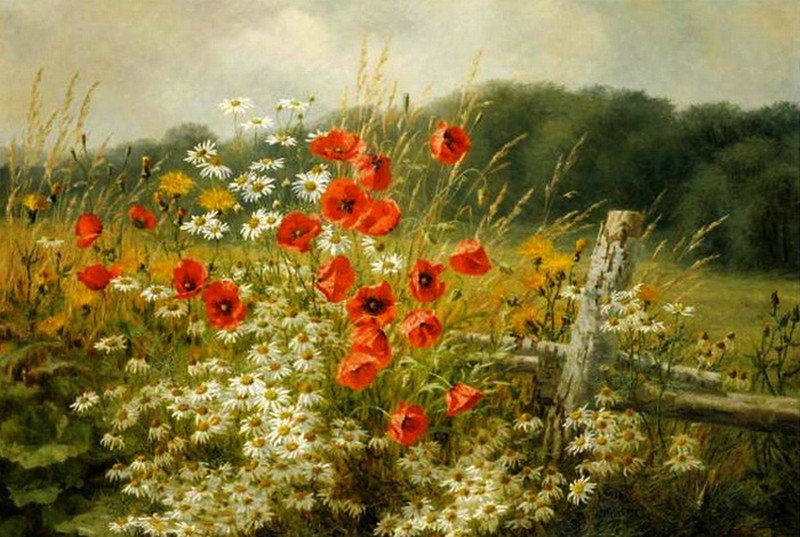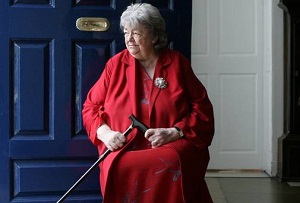Dolce far niente

Poppies And Daisies door Anthonore Christensen, 1903
The Throstler
“Summer is coming, summer is coming,
I know it, I know it, I know it.
Light again, leaf again, love again.”
Yes, my wild little Poet.
Sing the new year in under the blue.
Last year you sang it as gladly.
“New, new, new, new!” Is it then _so_ new
That you should carol so madly?
“Love again, song again, nest again, young again.”
Never a prophet so crazy!
And hardly a daisy as yet, little friend,
See, there is hardly a daisy.
“Here again, here, here, here, happy year!”
O warble, unchidden, unbidden!
Summer is coming, is coming, my dear,
And all the winters are hidden.

Alfred Tennyson (6 augustus 1809 – 6 oktober 1892)
De pastorie in Somersby. Tennyson werd geboren in Somersby
Zie voor de schrijvers van de 28e mei ook mijn twee vorige blogs van vandaag.


